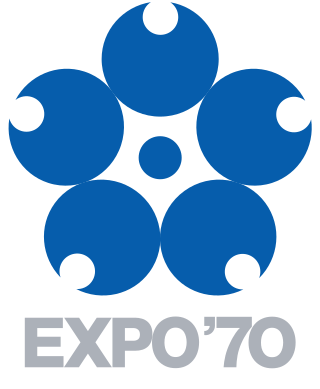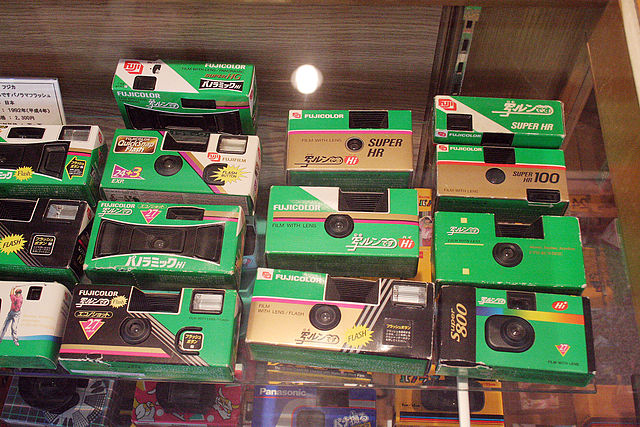Nostalgia for the Shōwa era From Wikipedia, the free encyclopedia
Shōwa nostalgia[1] (Japanese: 昭和ノスタルジア)[2] includes nostalgia for certain aspects of the postwar Shōwa era.[1][3][4][5] Shōwa retro (昭和レトロ) is retro related to the Shōwa era. The Shōwa retro boom (昭和レトロブーム) includes increased popularity and sales of Shōwa retro goods and services.[6] (The expression also loosely includes increased popularity of some things from the early part of the Heisei era).[7] The beginnings of periods of increased nostalgia have been dated to 1974,[7] 1986,[8] 2005,[7] 2012[9] and 2017.[7]


As of 2017, three quarters of the Japanese population were born in the Shōwa era.[10] By 2004, the expression "the good old Shōwa days" (古き良き昭和, furuki yoki Shōwa) was in use.[11]
Neo Shōwa (ネオ昭和) is a fusion of the culture of the past Shōwa and current Reiwa eras.[12]
Enthusiasm for Shōwa retro is not confined to people who remember the Shōwa era. Shōwa retro is popular with Generation Z, who were born after the Shōwa era.[13][14] Enthusiasm for Shōwa retro is not confined to Japan or to Japanese people.[15][16] As of 2024, there is a Shōwa retro boom in Thailand, where people are enthusiastic about Shōwa era anime.[17] Shōwa nostalgia includes anemoia.[18]
It has been said that the Shōwa nostalgia boom was preceded by Meiji and Taishō nostalgia,[19] which existed circa 1950.[20]
In 2011, Thompson said that nostalgia seemed to be centred on the Shōwa 30s (1955 to 1964).[21] In 2016, Hidaka said that nostalgia seemed to be centred on 1968 and the rest of the Shōwa 40s (1965 to 1974).[22]
Manifestations of Shōwa nostalgia include television programmes about the Shōwa era, such as Takeda Tetsuya no Shōwa wa kagayaiteita (2013 onwards),[20] Himekuri Taimu Toraberu (2007 to 2011) and most of the original series of Purojekuto Ekkusu: Chōsensha Tachi (2000 to 2005).[23]
It has been said that the film Always: Sunset on Third Street (2005) caused a period of increased Shōwa nostalgia.[2][7][24] From Up on Poppy Hill (2011) is nostalgic about 1963 Japan.[25][26] The director said that he was nostalgic about late 1950s to early 1960s Japan.[27] Other Shōwa nostalgia films include Hula Girls (2006) and Tokyo Tower: Mom and Me, and Sometimes Dad (2007).[28]
Shōwa nostalgia is the subject matter of the anime film Crayon Shin-chan: Fierceness That Invites Storm! The Adult Empire Strikes Back (2001). The film 20th Century Boys (2008) is similar.[29] The television programme Banpaku no Taiyo (2024) has Shōwa retro content depicting the time before and during Expo '70.[30][31][32]
Oshin (1983 to 1984) was a nostalgia television programme that covered the Shōwa era.[8]
Television programmes made in the Shōwa era, before self-imposed restrictions by the industry, are popular with young people.[7] Extremely Inappropriate! (2024) satirizes the excessive safety of Reiwa era television by contrasting it with Shōwa era television.[33][34] As of 2023, Takeshi's Castle (1986 to 1990) is popular with young people and got a new season on Amazon Prime Video.[35][36][37]

It has been said that the resurgence of city pop began with nostalgic crate digging by Japanese DJs at the end of the 20th century.[38][39] It has been said that the city pop boom was the beginning of a period of increased interest in Shōwa retro.[13] Older people are nostalgic about the songs "Mayonaka no Door" (1979) and "Plastic Love" (1984).[40] It has been said that the interest of young people in Shōwa retro came to public attention around 2017 when, amongst other things, a dance[7] that uses the song "Dancing Hero (Eat You Up)" (1985)[41] became popular.[7] As of 2024, there is nostalgia for the artists Meiko Nakahara and Saki Kubota, who created songs in the new music genre in the 1980s.[40][42] It has been said there is a "Shōwa song boom" (昭和歌謡ブーム)[43] and that Shōwa era kayōkyoku songs have become popular among young people.[44][45][46] Episodes of The Best Ten have been rebroadcast in Japan[44] and the Shōwa era music of Akina Nakamori and Seiko Matsuda,[47] Yoko Minamino[48] and others,[49] has become popular in South Korea.[47][50][51][52] There is nostalgia for the Shōwa era kayōkyoku songs of Momoe Yamaguchi.[53] The 2023 music video for ClariS' cover version of "Samishii Nettaigyo" (1989) is an homage to Wink, the original artists.[54][55] A performance in Tokyo in 2024 of a cover version of "Aoi Sangosho" (1980) by Korean band NewJeans went viral in South Korea and Japan.[56][57][58][59] AKB48 (2005 onwards) re-used ideas from Onyanko Club (1985 to 1987),[60][61] both of whom were produced by Yasushi Akimoto.[62] As of 2023, the song "Gakuen Tengoku" (1974) was popular on TikTok.[63] There have been karaoke rankings[64] and opinion polls on people's favourite Shōwa era songs.[65][66] It has been said that the popularity of 1980s female idols with young people is partly attributable to the appearance of Kyoko Koizumi and Hiroko Yakushimaru in Amachan (2013).[67] There have been Shōwa retro music festivals, and Shōwa retro tribute bands to Showa era musicians such as the Candies.[68][69][70]
It has been said that the publication of Sunset on Third Street in 1974 caused a period of increased nostalgia.[7]
Shūkan Shōwa Taimuzu (2007) and Shūkan Shōwa (Japanese: 週刊昭和) (2008) are Shōwa nostalgia magazines.[71] The nostalgia magazines Shōwa 40 nen Otoko (2009), Shōwa 45 nen Onna (2021) and Shōwa 50 nen Otoko (2019) are aimed at people born in 1965, 1970 and 1975.

Shōwa retro includes handheld versions of arcade games such as Pac-Man (1980) and Galaga (1981),[72][73] the revived popularity of Famicom,[74][75] and the release of new consoles capable of playing Famicom games.[76]
Adults are expressing Shōwa nostalgia by collecting capsule toys.[58] There is nostalgia for Shōwa era toys, and the Shibamata toy museum (Japanese: 柴又のおもちゃ博物館) in Shibamata has a collection of them.[77] As of 1988, there were displays of celluloid dolls (Japanese: セルロイド人形) that had been popular before 1956.[8][78]
There are Shōwa retro miniatures, such as the Shōwa series (Japanese: ザ・昭和シリーズ) of miniature replicas of Shōwa era electrical appliances.[79][80][81]

The Oriental Witches volleyball team were featured in NHK Shōwa nostalgia television programmes in the 1990s.[82]

There is nostalgia for Expo '70.[23] There are Showa retro theme parks.[83]

Shōwa retro includes the revival of Shōwa era fashions such as the taiyozoku clothing style.[84][85] There are Shōwa retro sneakers,[86] and there are shops for clothing produced in the Shōwa era.[87] The wearing of shoulder pads is a manifestation of nostalgia for the bubble era of the 1980s.[88] Akina Nakamori's Shōwa era makeup is being imitated by teenage girls in China.[89] Her Shōwa era hairstyle is also imitated and popular.[90][91] There is nostalgia for the Seiko-chan cut[92][93] and there are Shōwa retro barber shops.[94]

Manifestations of Shōwa retro include the revival of kissaten[95][96][3] and tableware with floral patterns,[9][97][98] and the consumption of dagashi[3] and ice cream soda (クリームソーダ).[9] McDonald's Japan produced the "Kissa Mac" range of food in 2023.[99]

There are Shōwa retro shōtengai (shopping streets).[101][102][1][3][100] There is a recreation of a 1960s shōtengai in the Seibu-en amusement park.[103][104] The Sagamihara Vending Machine Park consists of retro vending machines from the Shōwa era.[105][106][5]

There is nostalgia for the Tokyo Tower.[23]

Manifestations of Shōwa retro include the revival of disposable cameras, such as the Fujicolor Utsurundesu (写ルンです; 1986),[14][107][6] and cassette tapes,[7][108] and vinyl records.[109]
The Mitsuoka M55 is a Shōwa retro car from Mitsuoka.[110][111][112] There are collectors of Shōwa era cars.[113]
As of 2023, the value of some second-hand Shōwa retro goods produced in the Shōwa era had doubled.[114] Shōwa era retro goods have become popular as Christmas gifts.[115]

There is a Shōwa Retro Packaging Museum in Ōme, Tokyo.[116] There are Shōwa retro exhibits at the Retrospace-zaka Kaikan in Nishi-ku, Sapporo[117] and at the Shōwa Era Lifestyle Museum in Kitanagoya.[118]
As of 2017, there was nostalgia for former prime minister Kakuei Tanaka.[10]
As of 2011, Shōwa retro included the revival of kamado-gami masks.[21]
Seamless Wikipedia browsing. On steroids.